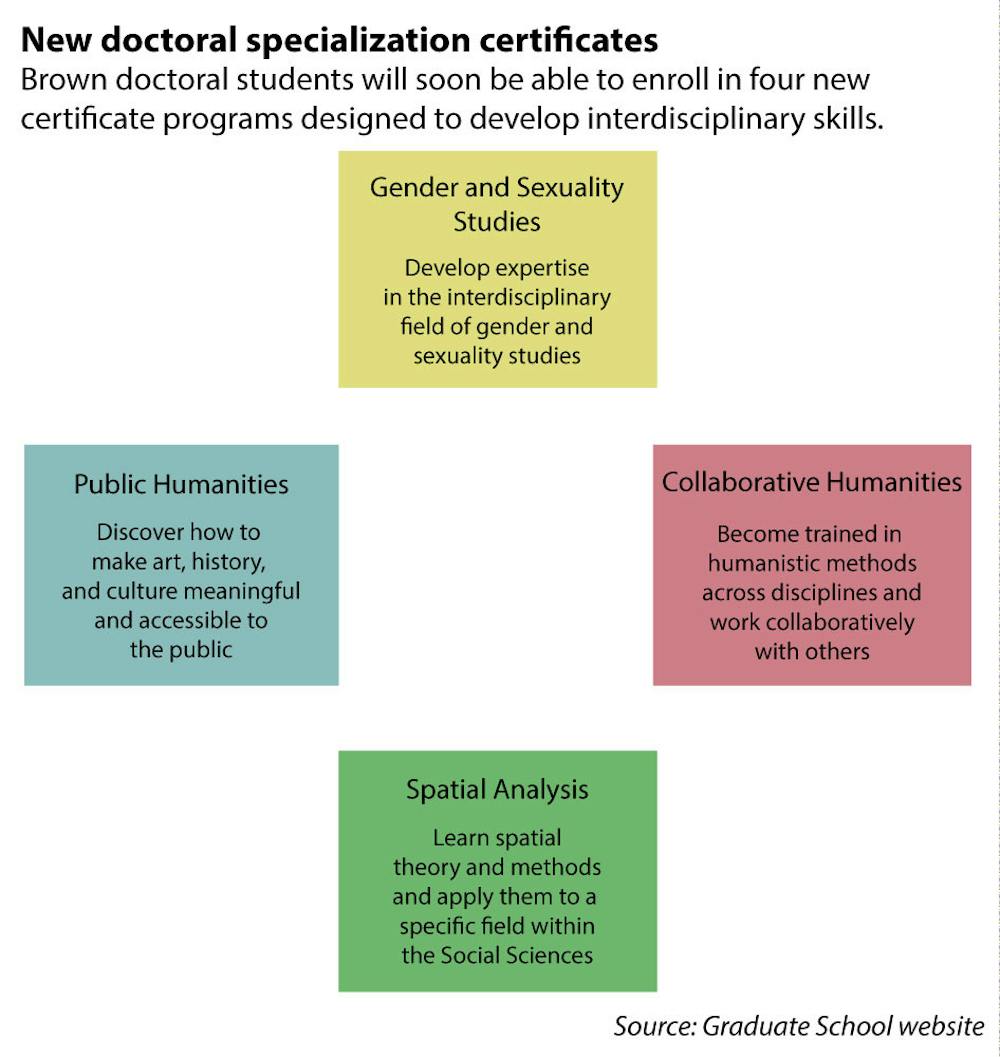The Graduate School now offers specialization certificates to doctoral students that will formally recognize expertise developed outside of their disciplines. The Graduate Council has approved four certificate programs so far: gender and sexuality studies, spatial analysis, public humanities and collaborative humanities.
Before offering certifications, departments or centers must propose three to five course requirements to the Graduate Council for approval. Students who successfully complete the requirements will gain recognition on their transcripts, including an indication of their field of specialization. Though the programs are referred to as certificates, the Registrar does not distribute separate documents for students who complete them, according to the Graduate School website.
The directors of the four new programs said the certificates will help students in the job market within and outside of academia.
“You can show potential employers that you are not only an expert in your particular field, but you have done enough coursework to be able to teach (it),” said Rachel Franklin, director of the spatial analysis certificate program, associate director of spatial structures in the social sciences and associate professor of population studies.
Susan Smulyan, director of the public humanities certificate program, professor of American studies and director of the John Nicholas Brown Center for Public Humanities and Cultural Heritage, said that as a former search committee member, she noticed that similar recognitions offered by other universities helped applicants during the academic hiring process.
“When we think of our own PhD students going out, we wanted to make sure they have all the chances they could to impress,” Smulyan said.
The four specializations differ in breadth and structure. The gender and sexuality studies certificate, offered by the Pembroke Center, requires relevant courses, research and a teaching component. Early interest has been demonstrated by students in the humanities and social sciences, said Drew Walker, director of the gender and sexuality studies certificate program and associate director of the Pembroke Center.
The Pembroke Center does not offer graduate degrees, so the gender and sexuality studies certificate will grant formal recognition to students who have completed significant coursework on the topic, Walker said.
The Cogut Center for the Humanities offers the collaborative humanities certificate, which focuses on the development of collaborative skills in research in the humanities. Collaborative research can be difficult but also “really stimulating and really productive,” said Amanda Anderson, director of the collaborative humanities certificate program, professor of humanities and English and director of the Cogut Center for the Humanities.
“What we’re really hoping that the students gain from the experience is learning how collaborative research proceeds and how to engage in it with respect to key theoretical, methodological and conceptual problems facing the humanities,” Anderson said.
A unique component of the collaborative humanities certificate is the interdisciplinary courses, which are each taught by a team of professors. This focus on collaboration is in line with the BrownTogether campaign, Anderson said.
The collaborative humanities certificate is “deliberately broad” and flexible, which best fits the needs of Brown’s relatively small graduate program, Anderson said. At some other universities, humanities departments offer specialization programs that focus on specific topics of interest, but that approach would require “a lot of financial support, and you need the critical mass” of faculty members and students.
Offered by the Spatial Structures in the Social Sciences initiative, the spatial analysis certificate is also designed to be flexible and approachable to students across disciplines. Spatial analysis is akin to geography, as it relies on spatial methods, Franklin said. Though spatial analysis is mostly quantitative, alternate options are also offered, such as an elective in classics, she added.
So far, most of the inquiries regarding spatial analysis have come from students studying sociology, anthropology and archaeology, Franklin said.
The public humanities certificate, offered by the Center for Public Humanities and Cultural Heritage and the department of American Studies, was an existing program for master’s students, “So it’s not a problem to add in a couple slots for PhD students,” Smulyan said. The certificate requires three courses as well as work experience in the public humanities.
Currently, students in history, modern culture and media, archaeology and Africana studies have shown interest, Smulyan said.





